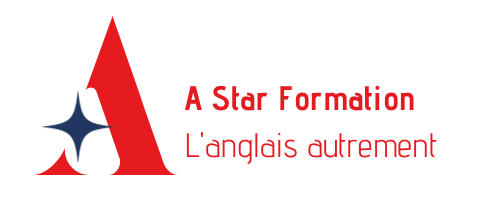Training Your Brain to Find Words More Quickly
It’s a common frustration to experience difficulty in finding the right word during a meeting or conversation, only for it to resurface in your mind afterward. This phenomenon, known as the « tip-of-the-tongue » phenomenon, can be frustrating and leave you feeling like you missed an opportunity. However, it’s important to remember that this is a normal occurrence, and there are strategies to improve word retrieval at the moment.
There is no magic secret to instantly finding the right words in English at the precise moment you need them. Language skills, including word retrieval, develop through practice, exposure, and continued learning. While there are public speaking techniques that can assist in improving word recall, it ultimately requires time and effort to enhance your language abilities. Embrace the learning journey, consistently engage in language practice, and utilize the available resources and strategies to strengthen your business communication skills. With dedication and perseverance, you will continue to make progress in finding the words you need for public speaking in English.
But don’t stop reading because I’m going to give you some useful public speaking tips and techniques to help you find those words when you need them.
Tip #1: Train your brain.
Learning how to do a pull-up is a great analogy for strengthening your brain’s ability to recall information. Just like training your muscles, improving your memory and learning capabilities requires consistent practice and exercise. By engaging in simple exercises, such as recalling information, you can strengthen the neural pathways in your brain.
Regularly testing yourself and actively recalling information has been shown to be an effective method for memorization and learning. When you actively retrieve information from your memory, you reinforce the connections between neurons, strengthening neural pathways. This process enhances your ability to recall that information in the future.
By incorporating regular practice sessions, dedicating time to test yourself, and actively recalling information, you can improve your memory and strengthen your brain’s ability to retrieve the needed knowledge. It may take time and consistent effort, like training for a pull-up, but the more you practice, the closer you’ll get to your goal of improved memory and learning skills.
Tip #2: Have a system to record and recall vocabulary.
Consistent review and practice are essential for retaining vocabulary effectively. Whether using online tools like Quizlet or other methods, regularly engaging with the words you want to learn through active recall and testing will strengthen your memory and make it easier for your brain to access the desired vocabulary when needed. Embrace the habit of frequent review and flashcard practice to improve your word retrieval abilities and enhance your language proficiency.
Tip #3: Do it regularly!
Consistency is key when it comes to improving vocabulary. Similar to the gym, where regular shorter workouts yield better progress than sporadic longer sessions, dedicating a few minutes every day or every other day to test yourself on vocabulary can make a significant difference. Just five minutes of focused vocabulary practice can reinforce your memory and strengthen neural pathways, leading to improved word retrieval. By making this a regular habit, you’ll experience noticeable growth in your vocabulary and enhance your language skills over time.
Tip #4: Make it easy.
To facilitate your language learning process, simplify and integrate learning materials into your everyday environment. Keep Quizlet readily accessible on your phone for quick vocabulary practice. Have your vocabulary notebook open on your desk as a constant reference point. Place post-it notes with keywords on your computer screen to reinforce learning. By making these resources easily available, you remove barriers and create a seamless learning experience. Remember, learning doesn’t have to be challenging; with accessible tools and visible reminders, you can effortlessly incorporate language learning into your daily routine.
Tip #5: Always prepare.
Preparation is the key to performance, and this includes preparing your vocabulary for a meeting or conversation. For example, one of my clients, a communications director, was preparing to speak to her boss about setting up a crisis management procedure. She brainstormed all the different words she would need to talk about this: the consequences of not having a procedure in place, the situations that would call for a crisis management plan, and verbs to talk about making a plan: set up, come up with, implement, assign. She noted all the vocabulary on one page that she could have in front of her for her meeting.
Bonus Tip: Deal with stress.
Dealing with stress is essential for effective learning and memory recall. In stressful situations, the brain can hinder information retrieval, leading to difficulties in remembering. To mitigate stress, develop long-term habits such as using relaxation techniques like the Respire Relax app to control your breath. Additionally, prioritize thorough preparation to boost confidence in high-pressure situations. By managing stress and being well-prepared, you create a conducive environment for learning and enhance your ability to recall information when it matters most.
That’s it! My six secrets to recalling words more easily that are not actually secrets. Your brain is an amazing tool: treat it well, work with it, and exercise it just like you exercise your body, and I promise you’ll see results.
Encore plus de post ici
How to Deal with Stress Before Your Presentations
18 juillet 2023




